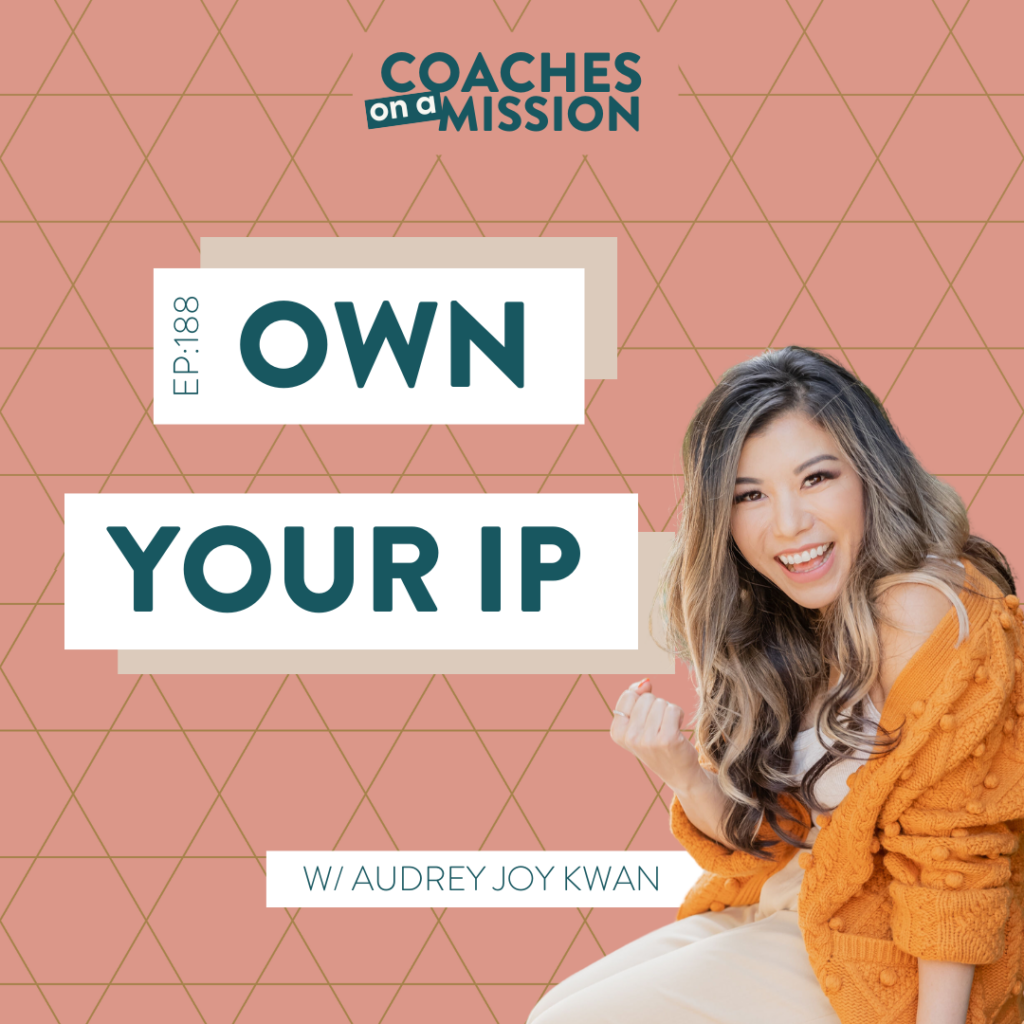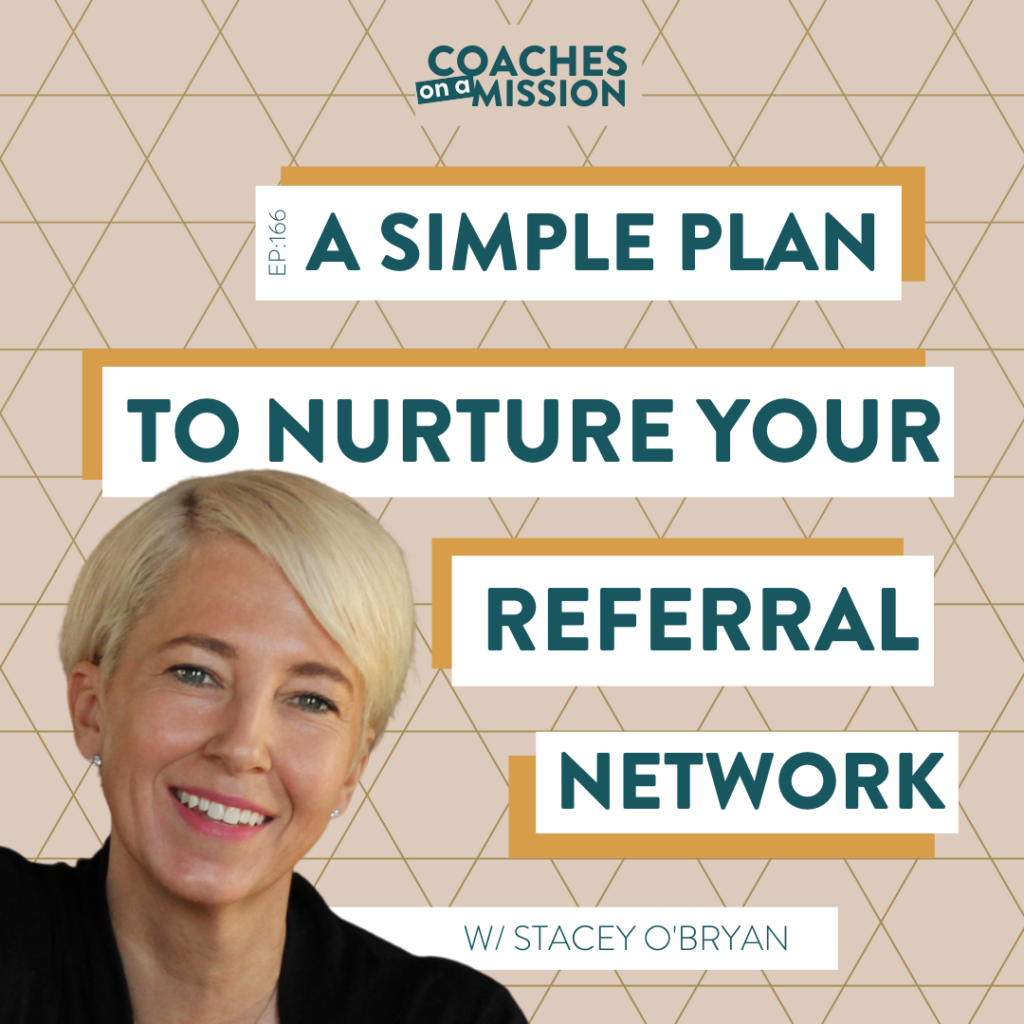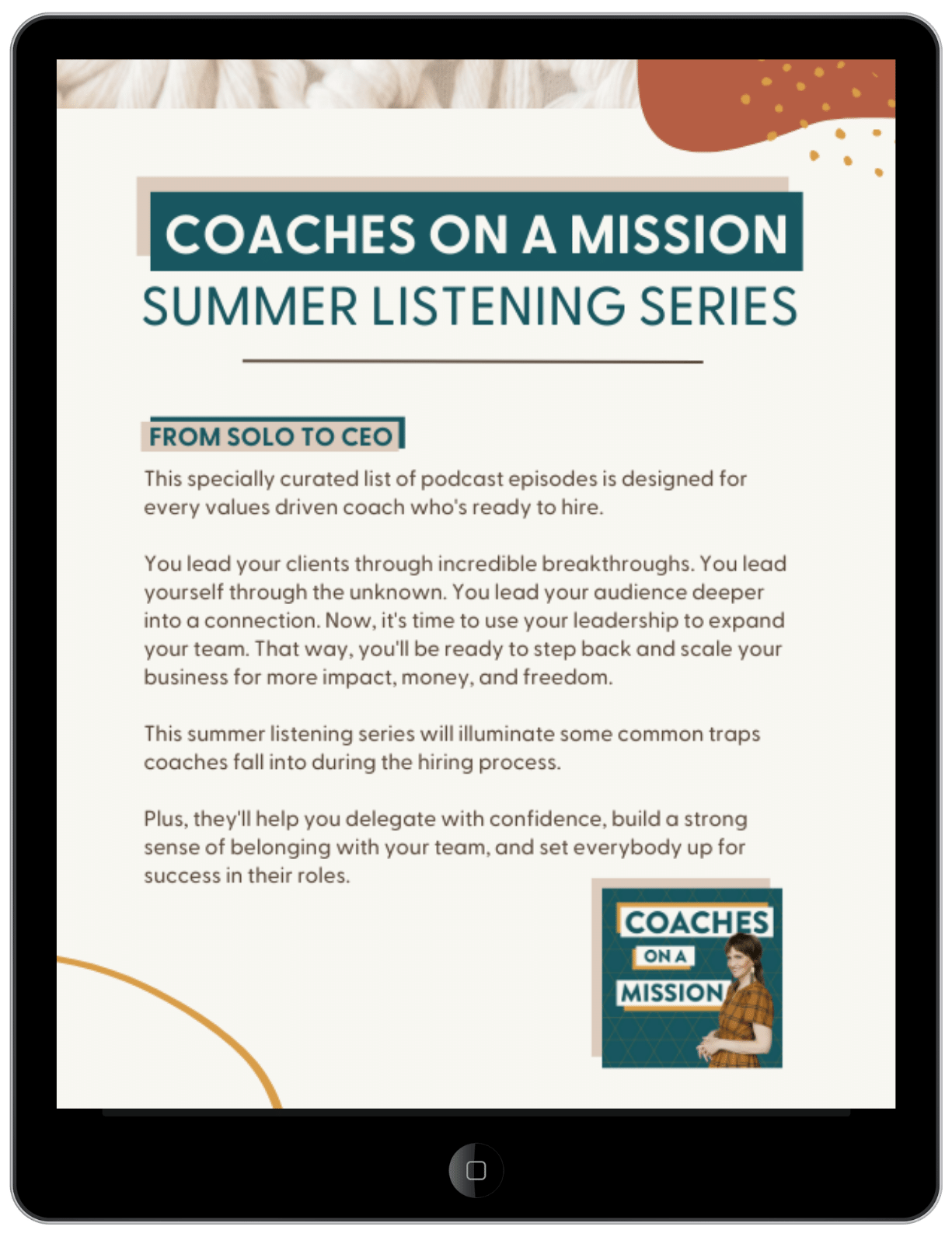What Is A Coach’s Intellectual Property?
We dove into something new today with my guest Audrey Joy Kwan who wants every coach to understand that they have unique IP they can leverage when they sell and when they serve their clients.
Let me break it down for you. Intellectual property, or IP, in the coaching world, are the systems in your business that create results. Think about it as the core processes that make your coaching effective.
There are key systems in every business: service delivery, marketing, sales, human resources, and admin. Each of these systems should produce a result. If it doesn’t, it’s not considered IP. Just having a process isn’t enough; it must create a tangible outcome for your clients.
Content, like your marketing materials or blog posts, isn’t IP. It’s about the service delivery systems behind the scenes. For example, if you’re a coach with a private coaching offer and group sessions, your IP would include how you onboard clients, schedule sessions, and track progress. It’s not the intake form itself but the entire process around using that form.
In short, IP is how you get clients from point A to point Z, creating real results along the way. Simple, right?
Uncover Your Hidden Intellectual Property
If you’re thinking, “I don’t have a system so I don’t have intellectual property,” think again! Here’s the gist:
- Milestones: Your service delivery has key milestones like onboarding, implementation, and offboarding.
- Playbooks: Each milestone has its own set of steps or processes. Combine these into onboarding, implementation, and offboarding playbooks.
- Signature System: Putting all these playbooks together gives you a complete system, which is essentially your intellectual property.
- Invisible Workload: Great coaches often skip over their process in their heads. This “invisible workload” needs to be uncovered and documented.
- Pattern Recognition: Track and record your coaching sessions. Look for patterns in your questions and methods. This will help you identify your unique system.
- AI Help: Use AI tools to transcribe and analyze your calls to find those recurring patterns.
By understanding and outlining your process, you can develop a scalable business that isn’t solely dependent on you.
Why Is It Crucial to Own Your IP?
It’s all about building an asset in your business. If you want to make a bigger impact and serve more people, you can’t do it alone. Scaling means bringing others in, but they need to know your special methods. That’s where your processes and systems, aka IP, come in.
I love using the Lyft Ride Litmus test. Imagine if you left your IP booklet in an Uber. Could the next passenger pick it up and know exactly what to do? Our goal is to make your processes that clear. This gives you the freedom to step away when needed.
It’s smart to prioritize IP now, even if you only have a handful of clients. Building systems early sets you up for more options later. Remember, IP isn’t a one-and-done deal. you’re constantly improving it by removing unnecessary steps. That makes everything faster and better. People just want results, and if you can deliver quicker, they’ll be ready to buy.
What Does Having Solid IP Mean?
Intellectual property also helps in the sales process. If someone asks how you’re going to help them, it’s better to have a clear plan rather than just saying you’ll figure it out together. For example, explaining your process with five pillars can build trust and credibility.
Having solid IP means when clients ask, “How long will it take?” you can give data-driven answers instead of vague replies. This boosts confidence for both you and your client.
IP is also a powerful sales tool. At the end of a contract, you can review the progress through your pillars with your client. This might help in upselling your services by showing what’s left to achieve.
My friend didn’t even need to do renewal sales calls for a leadership mastermind. Everyone just got a checklist of the program’s IP to see their progress. It made continuing the program an easy decision.
You can also optimize your process over time. A good IP system can streamline things, like replacing sales calls with a simple checklist.
IP isn’t just for selling. It’s useful for marketing too. Creating Instagram content becomes easier and more compelling if you refer to your IP. So, I’m totally sold on this IP idea!
Real-Life Example Of IP In Action
Intellectual property isn’t just for internal processes. It’s also a fantastic marketing tool. Imagine this: When you’ve got a unique process to get results, that’s your IP. And guess what? It’s also your thought leadership. This IP makes you stand out in a crowded market.
So, what does this look like in real life? Let’s break it down. Think of a consultant with a clear promise – say, tripling your leads. They work backward from that promise and break it into steps or “pillars” like onboarding, strategy, implementing, reviewing, and re-strategizing.
Each pillar can have multiple “playbooks” or actions to achieve it. And within each playbook are detailed “processes.” So, you’ve got pillars, playbooks, and processes – that’s your IP system.
If you’re wondering how to find your IP, start by defining the promise to your client. Then, identify the milestones needed to reach that promise. It’s all about breaking it down step by step.
Track Your Progress
Growth isn’t about quickly zipping from A to Z. It’s a step-by-step journey from A to B, C, and so forth. Step one? Build awareness. Identify tools to help clients develop this awareness. Each tool is a milestone in your process.
Having a clear map of your journey boosts confidence. You can see what your intellectual property is and the impact you’re making. It’s about believing you have a roadmap inside you and working on your business to find it.
How to figure out your roadmap? Record your coaching sessions. Use transcription software to identify common patterns and milestones.
And here’s a neat trick: I take notes during sessions on what steps we’re discussing. Just a word or two on a Post-it note helps later on. After each session, I take 15 minutes to jot down fresh notes about my IP. It’s a simple yet powerful way to keep track of your process.
Start small with your pillars – maybe just two to begin with. Less can be more. You can always expand as you go.
Mastering Your Intellectual Property
It’s all about showing your expertise without overwhelming anyone. Start by breaking down your IP into simple steps – like three to five steps. This keeps clients engaged and not overwhelmed.
If you’ve got a ton of playbooks, maybe it’s time to streamline. Ask yourself, do you really need 52 playbooks? Instead, aim for a few key ones and a process to pick the right one when needed.
Remember, while structure’s great, there’s room for creativity. Every client’s different, so sometimes you’ll need to trust your gut and go off-script to meet their needs.
When building a business, think about niching. A niche helps reveal patterns in client needs, making it easier to hone your IP. If you’re serving everyone, it’s tougher to find consistency. But with a niche, your IP becomes clearer, which helps in growing a business versus just self-employment.
The Beauty Of IP And Creativity
IP isn’t just a rigid set of rules. Instead, it’s a playbook that allows creativity to shine. Audrey Joy describes intellectual as “guardrails” that don’t limit creativity but support it. Think of it like a sandbox – there are edges, but within those, you can build whatever you want.
Here’s my favorite part: To create IP, start with identifying your pillars, and then figure out how you get results in each one. Analyze those steps – even if it’s not perfect, it’s a start. Then test it.
This podcast episode is about owning your unique genius. And now, it feels less abstract and more actionable. Thanks to Audrey Joy for making it clear and fun!








